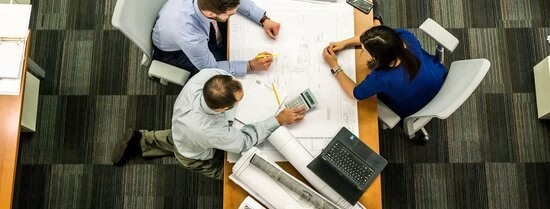Meet the members of the Erasmus Research Platform on Sustainable Business & Human Rights.
In her doctoral research, she focused in particular on the role and impact of ‘foreign direct liability claims’: transnational civil liability claims against multinational corporations for the detrimental impacts of their activities on people and planet in host countries. Since then, her research focus has broadened to a comparative and multidisciplinary study of the ways in which different legal and non-legal regulatory instruments may be combined in order to effectively promote responsible business conduct in global value chains and, in the end, a more equal distribution of the costs and the benefits associated with international business activities.
Over the past decade, Liesbeth Enneking has published a variety of articles in international and Dutch refereed journals as well as a number of books on the legal aspects of responsible business conduct in an international context. In her capacity as legal expert, she has been actively involved in legal and socio-political debates on corporate social responsibility, fair trade, and business & human rights. She frequently gives presentations at conferences and research seminars in the Netherlands and abroad, and is regularly consulted on legal and policy issues within her field of expertise. She has taken part in a variety of (multidisciplinary) research projects, the majority of which have been externally funded by organizations such as the European Commission, the Dutch Ministries of Foreign Affairs and Security & Justice, the Netherlands Organisation for Scientific Research (NWO) and the AXA Research Fund.
During the 2015-2016 academic year, she held a rotating professorship position at the University of Leuven’s Department of Law, a position funded by the Belgian/Dutch Tijdschrift voor Privaatrecht (TPR). She is a member of the Monitoring Committee of the Dutch Insurance Covenant.
He is co-founder of the department of Business-Society Management, one of the leading departments in the world studying and teaching about the contribution of business and leaders towards society. For more than ten years he worked together with UNCTAD to compile the annual list of the ‘world’s largest TNCs’ (Published in the World Investment Report).
Rob van Tulder is also academic director of the Partnerships Resource Centre, an expert centre bringing together leading NGOs, firms and governments in the study and management of cross-sector partnerships for the social good. He is also the founder of Scope, an expert centre at Erasmus University in International Business and Sustainable Development. Together with UNCTAD, Scope compiles the widely-published lists of the largest Transnational Corporations worldwide from developed and developing countries, published annually in the World Investment Report. In addition, he is the chairman of the Jury of the scholarship for the Natural Capital Forum.
Rob van Tulder has published extensively on the topics of European business, multinationals, high-tech industries, corporate social responsibility, issues management, skills, network strategies, smaller industrial countries (welfare states) and European Community/Union policies. He has received numerous accolades for his intellectual and societal contributions. He published in journals like the California Management Review, Journal of International Business Studies, Journal of Business Ethics, Journal of World Business. His latest book publications include: Getting all the motives right (2018); Business & the Sustainable Development Goals: a Framework for Effective Corporate Involvement (2018); International Business and Sustainable Development (2014); Managing the Transition to a Sustainable Enterprise (2014); Doing Business in Africa, a strategic guide for entrepreneurs (2013); Corporate Responsibilities in Turbulent time (2010-2012, also in Chinese); Skill Sheets: an integrated approach to research, study and management (2012); International Business-Society Management (2006).
It is interdisciplinary in that effectiveness is not determined by legal aspects in themselves but also by the governance and economic effects of these initiatives. Because a comprehensive global approach that is effectively enforced by governments seems to be remote, these multi-stakeholder initiatives may be the best way forward for the near future, provided they are effective. In connection with this he also researches new IT-technology, like block chain and AI, to enhance (transparency on) human rights compliance by business. His academic work includes over 100 academic publications.
Martijn Scheltema holds a number of relevant positions in international organizations and multi-stakeholder initiatives. He is Chair of the independent binding dispute resolution mechanism of the Dutch International Responsible Business Conduct Agreement in the Textile sector, which was concluded between industry, government and NGOs in 2016. Furthermore, he is Co-Chair of the Business Human Rights Committee of the International Bar Association, together with Rae Lindsay, and a member of the American Bar Association Business Human Rights Project. He is also the Co-Chair, together with Raymond Saner, of the OECD Academic Network for Responsible Business Conduct. In addition, he is on the Steering Committee of the MSI Integrity Academic network and has been a founding board member of ACCESS Facility in the Netherlands, an independent global institution that supports access to non-judicial remedy for company-community conflict.
Next to his academic and other positions, he chairs the business and human rights practice group at his law firm and has been involved in several international human rights landmark cases at the Dutch Supreme Court. He is the only Dutch lawyer ranked for business and human rights in the Chambers Global guide.
As a research associate to the Special Chair on International Business and Human Rights (RSM), she focused on (pro)active human rights approaches in the financial sector, conducting projects at the Dutch Development Bank FMO and the Fair Bank Guide, and organizing expert meetings for General Counsels and CSR managers.
She currently holds a PhD position at the Erasmus School of Law linked to the Erasmus Initiative ‘Dynamics of Inclusive Prosperity’. Her PhD research is about the potential of the financial sector to contribute to the realization of human rights by exercising leverage on corporate clients. The research takes a multidisciplinary approach, combining management stances and legal arrangements into innovative approaches for responsible and pro-active business conduct aimed at minimizing negative impact of business operations and creating positive impact for the societies in which businesses operate.




